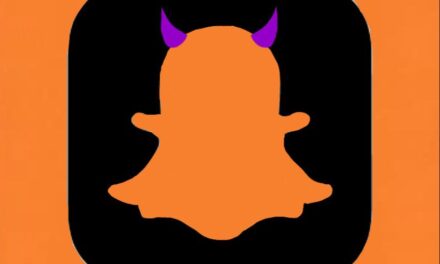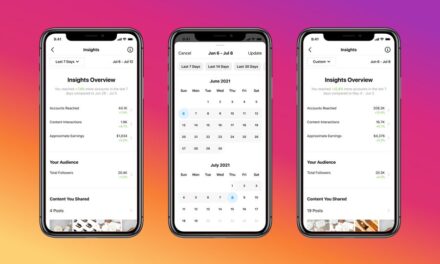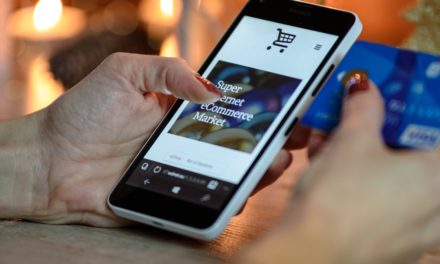By Nidhi Dave
As 2019 approaches, the digital marketing landscape that encompasses SEO, social media, PPC, content marketing and more is witnessing a dramatic shift. There may have been a time when you could’ve dismissed artificial intelligence or visual search as gimmicks from the latest blockbuster science fiction film, but that time is long gone.
There are many new digital marketing trends and strategies that are evolving in the current high-tech, Internet-connected era and businesses now need to use them to succeed in their efforts because what worked for you last year may not work this year.
Here are eleven key digital marketing trends for 2019.
1) Artificial Intelligence
Artificial intelligence will take over the world! Or at least the world’s simpler jobs.
AI can analyze consumer behavior and search patterns, utilizing data from social media platforms and blog posts to help businesses understand how users and customers find their products and services. For example, Facebook messenger bots (which we’ll talk more about later) can help you automate and optimize your customer service.
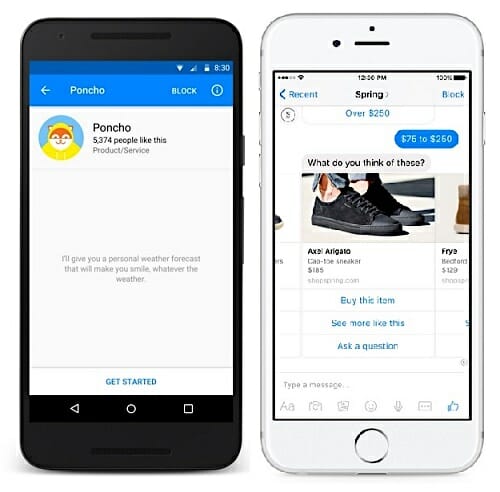
Artificial intelligence also offers information and tips to users by getting into conversations. According to Gartner, 25% of customer service will use chatbot technology by 2020, up from less than 2% in 2017.
Businesses adopting AI in 2019 will be able to save costs and accelerate growth, getting an edge over their competitors.
Learn More:
- The Benefits and Dangers of Having AI Chatbots Interacting With Your Customers
- How to Get Started with AI-Powered Content Marketing
- 3 Ways to Use AI for Instant Brand Building
- 5 Reasons Why Live Chat Helps Your Business Go the Extra Mile
2) Programmatic Advertising
Programmatic advertising means using AI to automate ad buying so you can target more specific audiences. Real-time bidding or auctions, for example, is a type of programmatic ad buying. This automation is much more efficient and fast, which means higher conversions and lower customer acquisition costs.
It’s changing the face of digital advertising so swiftly that, according to eMarketer, almost 90% of digital display ads in the U.S. will be programmatic by 2020.
To learn how to capitalize on this digital marketing trend, check out PPC Hero’s guide to get started.
3) Chatbots
Chatbots will continue to be an important part of digital marketing in 2019.
This AI-based technology uses instant messaging to chat in real-time, day or night, with your customers or site visitors. With 1.4 billion people interacting with chatbots, 80% of savvy businesses are already using or plan to use chatbots by 2020. And by 2022, chatbots will help businesses save over $8 billion per annum, especially in the banking and healthcare industries.
Many customers prefer interacting with chatbots as they are responsive, give answers promptly, accurately recall your entire buying history, and never lose patience. These virtual assistants offer outstanding customer service, meeting customers’ expectations and automating repetitive tasks – which means you can focus on more important work.
Uber uses chatbot technology to communicate with customers, making it easy for them to hire cars even on Facebook Messenger, from Slack or via Google Maps. Passengers can use the menu to choose the type of ride, make a request, track the location of the car, send friends a time estimate of their arrival, and even make payment.
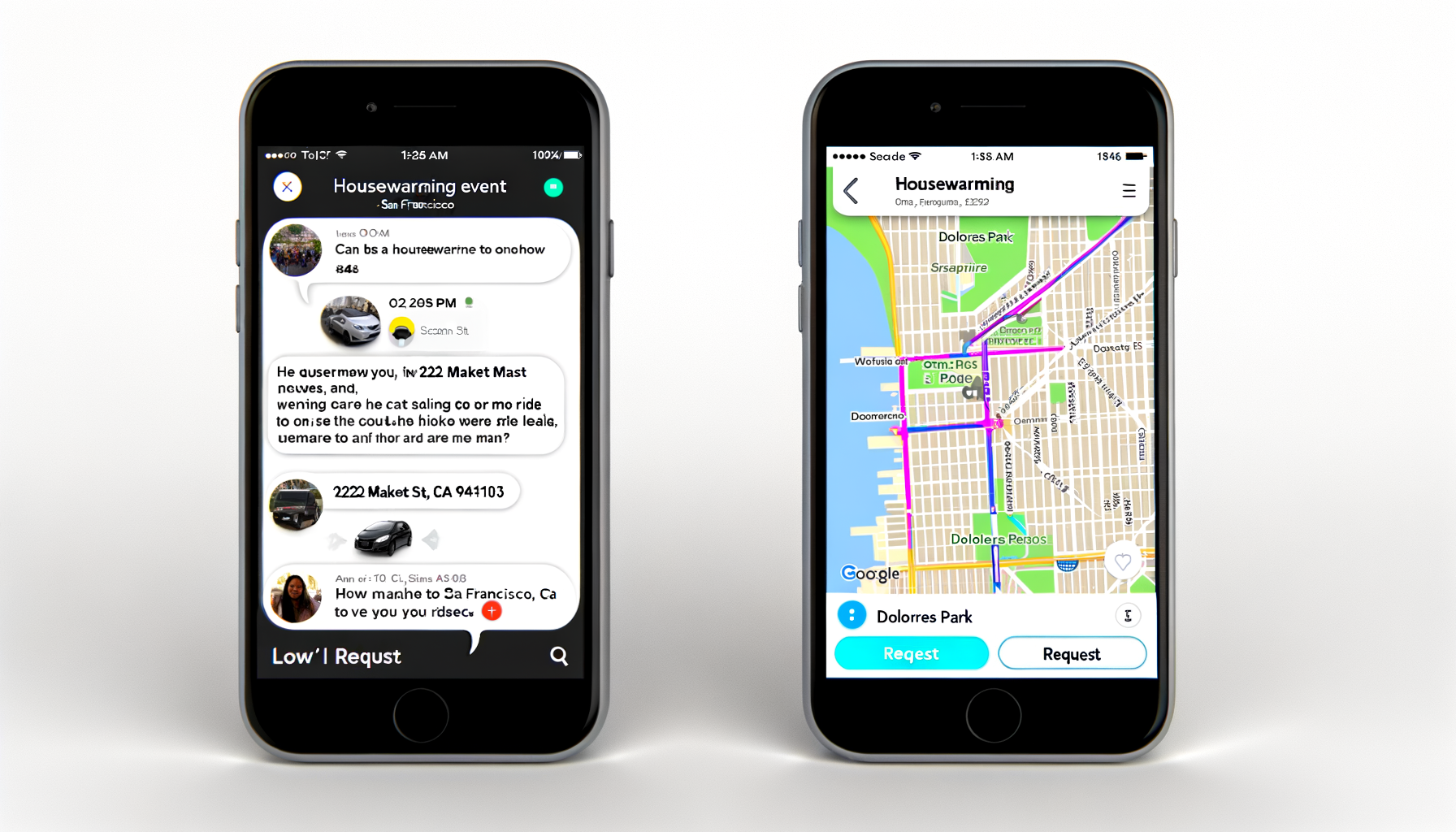
4) Personalization
If you want to stand out in 2019, you need to personalize your marketing – and that means personalized content, products, emails, and more.
With the availability of data like purchase history, consumer behavior and links clicked, custom content has never been easier. In fact, 96% of marketers believe that personalization advances customer relationships.
As Kevin George, Head of Marketing at EmailMonks, says, “The future of e-mail is real-time, behavior-based personalization. A study by Marketo shows that personalized, triggered e-mails based on behavior are 3x better than batch-and-blast e-mails.”
Businesses like Netflix and Amazon are already leveraging the power of personalization. Logging on to your Netflix account, for example, immediately shows you the evidence of this: the banner, carousels, order, artwork, text and search are all personalized for you.
As they say: Personalization = Maximize enjoyment + Minimize search time
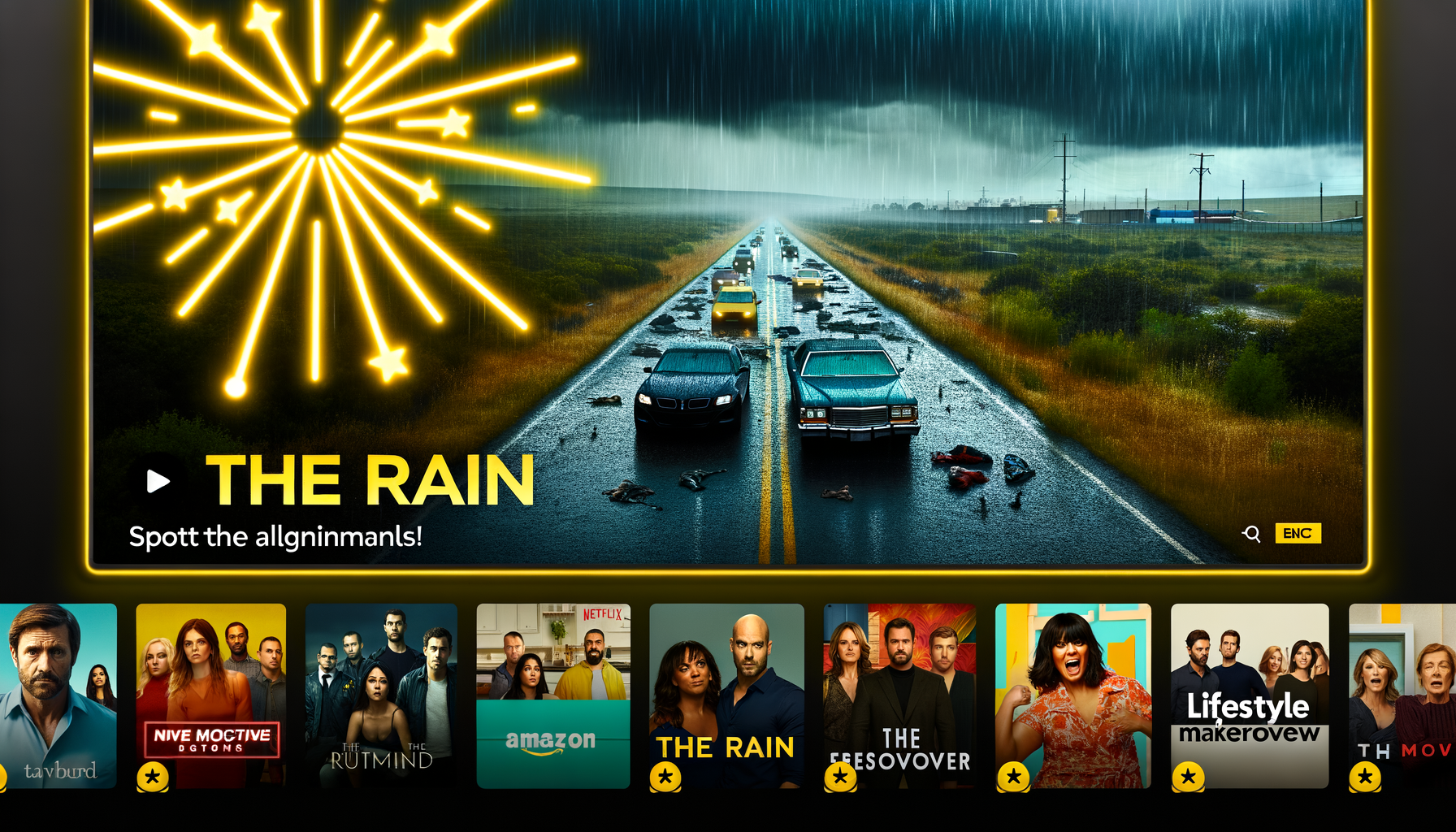
5) Video Marketing
These numbers show the importance of incorporating video into your digital marketing strategy in 2019:
- 70% of consumers say that they have shared a brand’s video.
- 72% of businesses say video has improved their conversion rate.
- 52% of consumers say that watching product videos makes them more confident in online purchase decisions.
- 65% of executives visit the marketer’s website and 39% call a vendor after viewing a video.
And don’t just think YouTube. To witness higher engagement with your video marketing, you can make a video post or start a live broadcast on Facebook, Instagram or LinkedIn.
Live video is gaining popularity, with a large number of businesses using it for interviews, product demos and “behind the scenes” glimpses of events, life in the office, how products are made, etc.
With ever-decreasing costs of film equipment and the increasingly high-quality smartphone cameras, businesses and marketers are heading for personalized video messages rather than phone calls or emails, which is called the 1:1 video approach.
YouTube and other videos are displayed in the SERPs, so video SEO is becoming much more important – like using text overlays and closed captions, in addition to your description, title and file names. Check out this guide to learn more about YouTube SEO.
And 360-degree video content, which allows for a more interactive experience, is on the rise – just look for the circular symbol in the top left corner to start sliding the moving image left or right as it’s playing.

Learn More:
- How AI Is Shaping the Future of Content Marketing and Personalization
- How AI Helps Add Personalization to Your Email Campaigns
- How Machine Learning Is Transforming Content Marketing
- The Complete Guide to YouTube SEO
6) Influencer Marketing
As Raghav Haran puts it, “Influencer marketing is a type of word-of-mouth marketing that focuses on using key leaders to drive your brand’s message to the larger market…. Rather than marketing directly to a large group of consumers, you instead pay influencers to get out the word for you.”
Using influencers is a very effective marketing tool that works to attract customers. Influencers can be anyone from celebrities and Instagram or YouTube stars to well-known bloggers and journalists who help spread the word about your business or product through their social channels.
Because people generally trust consumer opinions over corporate statements, frozen food retailer Iceland “ditched celebrities in favour of real people, tapping into a dedicated community of micro-influencers” like “real mums”. After partnering with Channel Mum, Iceland’s approval ratings increased from 10% to 80%, which was a 72% increase above the agreed digital KPIs.
Learn More:
- How Artificial Intelligence Is Transforming Influencer Marketing
- 5 Hacks to Start a Conversation with an Influencer
- How to Reinforce Your Customer Acquisition Strategy with Influencer Marketing
- How to Grow Your Business With Influencer Marketing
7) Social Messaging Apps
Think social messaging apps are just for sending emojis to your friends?
Consider these numbers:
- 1.3 billion monthly users are active on Facebook Messenger
- 2 billion messages are sent between people and businesses on Facebook Messenger every month
- WhatsApp has 1.3 billion monthly active users
- 55 billion messages are sent via WhatsApp every day
- WhatsApp, Facebook Messenger, and WeChat have more combined users than Facebook or YouTube
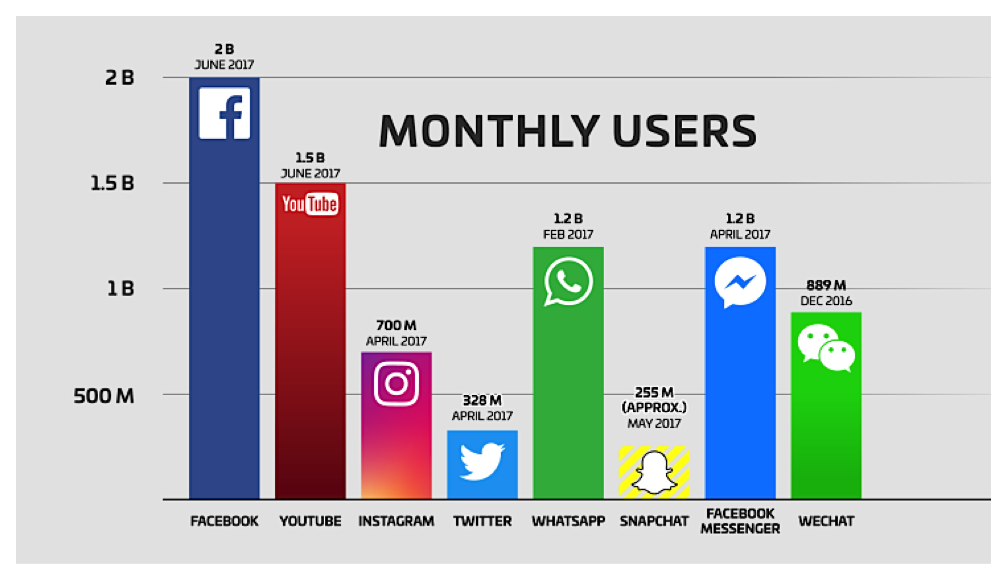
These statistics show the growing popularity of social messaging apps for business purposes. Since people are spending more of their time messaging each other, it makes sense to market your company’s services where your potential customers are hanging out.
Social messaging apps can be very useful in sending messages to customers directly, as they allow personalization (another trend) and add value to the users’ experience. This differs from the messenger chatbots we discussed earlier. You’re actually able to market to customers using messaging apps now!
For example, I sometimes receive automated marketing messages from Facebook pages I like. Kimra Luna loves to send me event notifications for her webinars and shows:
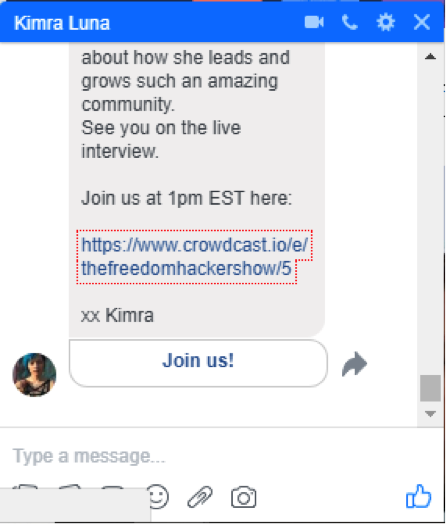
8) Visual Search
Visual search can take the user experience to a totally new level. With visual search, users can upload an image to conduct a search and get more specific results.
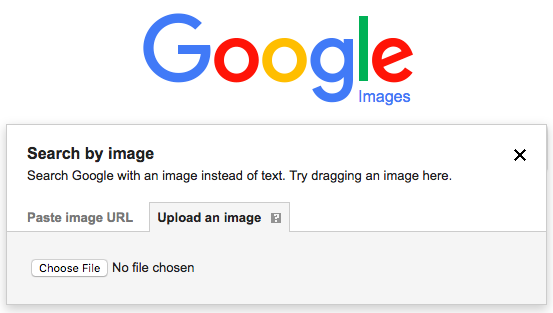
Not surprisingly, Pinterest has jumped on the visual search bandwagon – they came out with Lens, a new visual search tool that allows users to take a photo of an item to find out where to buy it online, search for similar products, or view pinboards of related items.
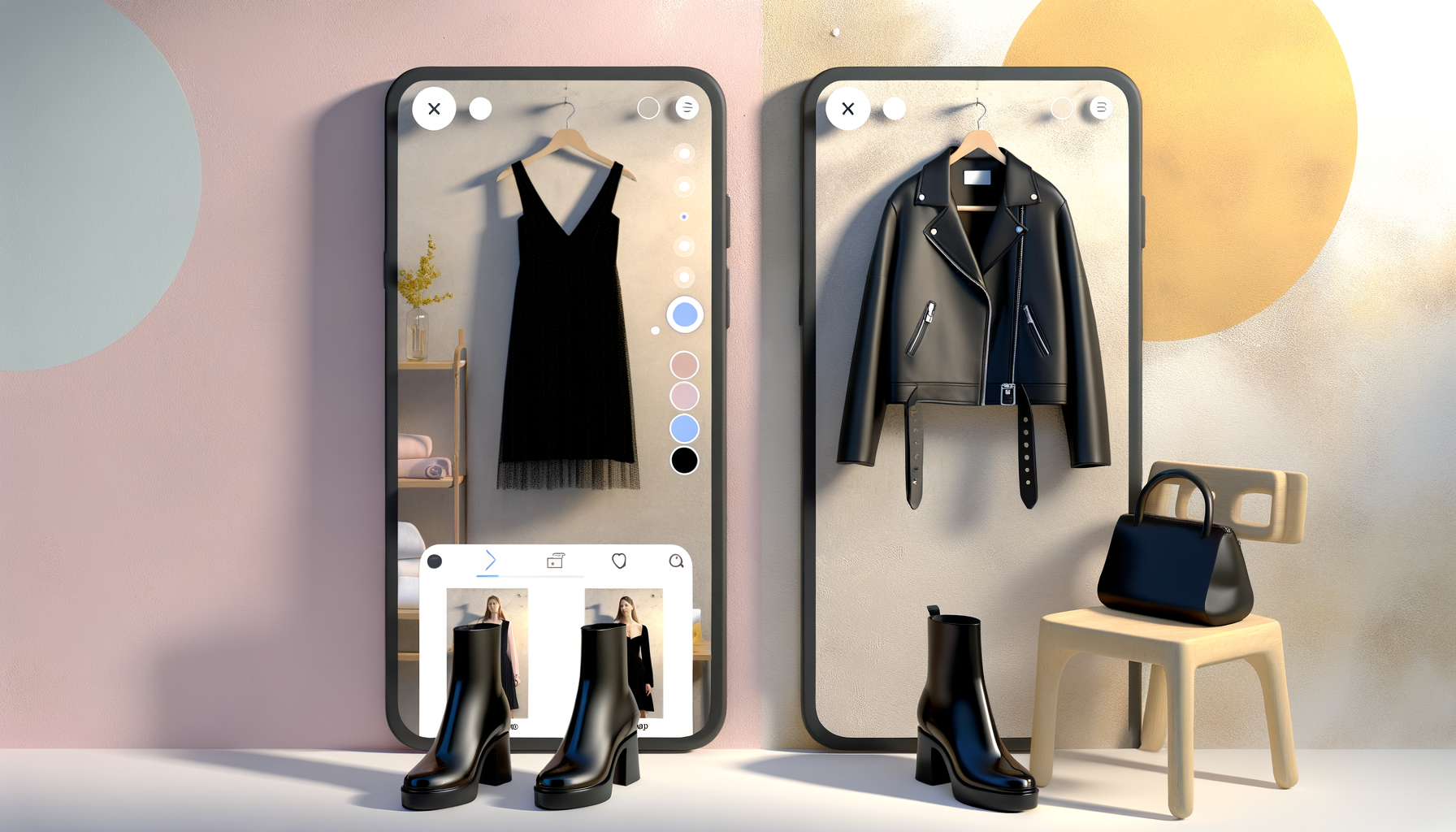
And Pinterest is not the only one with visual search.
Google Lens is a visual search engine by Google, which recognizes objects, landmarks and other things visually through a camera app (currently only available on Pixel phones).
If you take a photo of a:
- Business card: You can save the phone number or address to a contact.
- Book: You can get reviews and other details about it.
- Landmark or building: You can get more details about it.
- Painting in a museum: You can get details about it.
And CamFind is a visual search mobile app, which enables users to search for anything from their mobile phones simply by snapping a picture and this app will tell you what it is. Instead of typing queries into a search engine, you can directly search through images to find similar images, price comparisons, local shopping results, etc. You can also take a picture of a movie poster and CamFind will show you movie information, trailers, showtimes, and local theaters.
Marketers can get the edge on competitors by jumping on the visual search trend in 2019 to draw customers and serve them the perfect product.
9) Micro-Moments
People spend an average of 3 hours and 35 minutes on their smartphones every day, and by 2019, mobile devices will be the medium that gets the most minutes in the U.S. (finally surpassing television).
This is changing the way brands must work to capture buyers’ attention.
Micro-Moments is a “new consumer behavior,” as termed by Google, that delivers your marketing message clearly and concisely in a way that is of interest to the consumers – all within a span of seconds (otherwise, they lose their attention and are onto the next article!).
People generally make instant decisions on what to eat, which restaurant to choose, what to purchase, or where to go, so Micro-Moments that that every marketer should know about are:
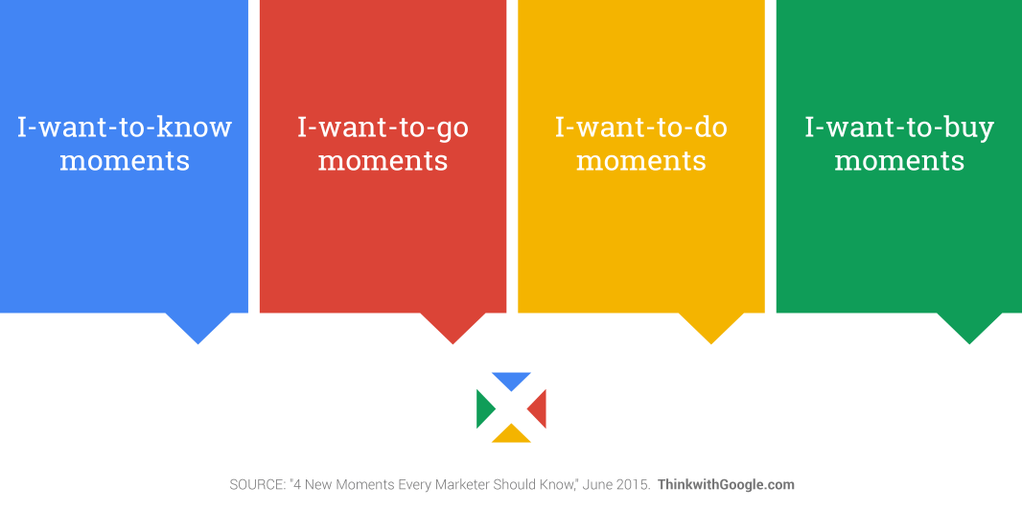
To take advantage of micro-moments in 2019, be where consumers search for information in the moment – such as Google, Google Maps, Amazon, YouTube, and anywhere else people search for information at a moment’s notice.
Take a look at how a variety of brands are using Micro-Moments in their marketing:
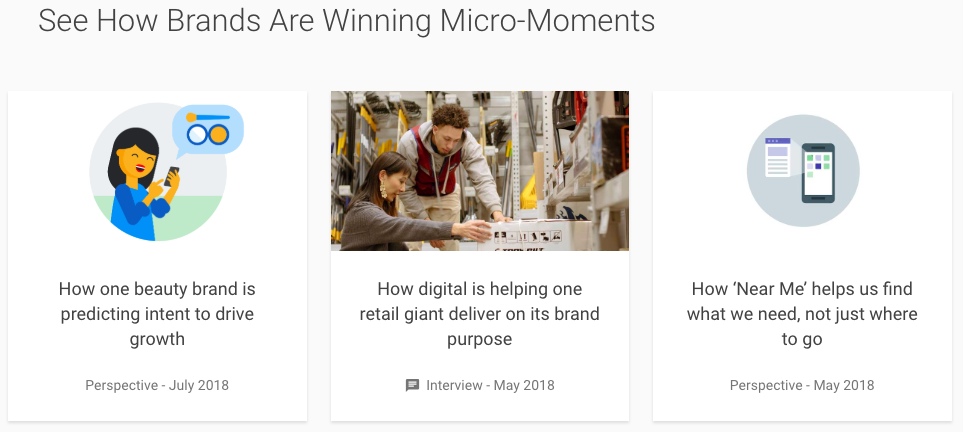
10) Voice Search & Smart Speakers
Hey Siri, what time is Mission Impossible playing tonight?
Alexa, find me a recipe for apple butter.
The increasing use of voice search has made it important for companies to rethink their digital marketing strategies in 2019.
- 50% of all searches will be voice searches by the year 2020
- 20% of mobile queries on Google are voice searches
- 25% of all Bing searches are voice searches
Voice search plays an important role in providing all the relevant information that people are searching for through audio content. Artificial Intelligence is getting smarter and the number of errors made by voice assistants like Alexa, Siri and Google has reduced.
Many brands have included voice search in their digital marketing strategies to deliver value-based content effectively to their customers. Domino’s Pizza uses voice search technology as a way to increase its sales, thus allowing customers to order pizzas through Alexa:
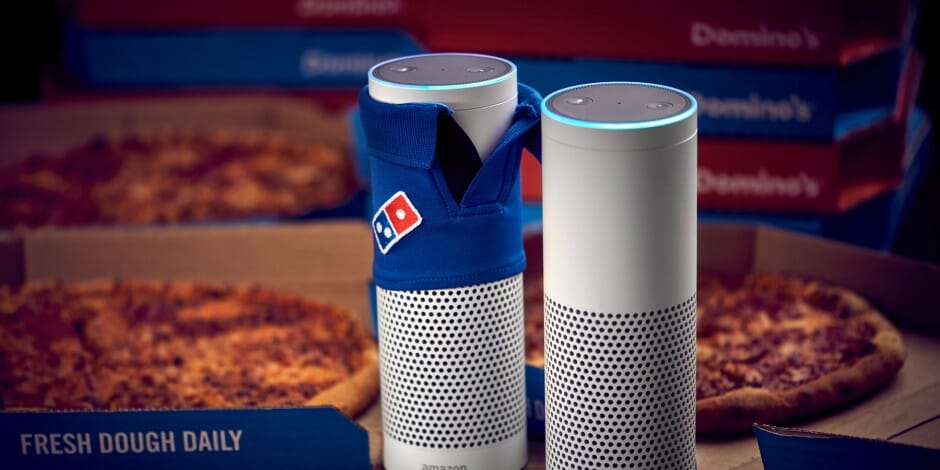
Smart speakers like Alexa and Google Home are also on the rise: 39 million Americans use smart speakers and 65% of them say they wouldn’t want to go back to life without their voice-controlled assistant.
Keep in mind that not only will more companies produce audio content in the hopes of gaining brand awareness (so you should, too), but ads are likely to come in soon. Alexa will tell you the answer to your question along with a “word from her sponsor”. Which means you’ll be able to purchase voice ad space – like Google AdWords, but for home speakers.
For all voice technology, remember to write in a conversational tone, focus on getting featured snippets on Google, and think about keywords that people will speak rather than type.
Learn More:
- 5 Steps to Optimize Your Content For Voice Search
- Beginner’s Guide to Voice Search SEO
- How to Create an Attention-Grabbing Instagram Stories Ad
- The Ultimate Guide to Running Instagram Stories Ads
11) Social Media Stories
With the growing popularity of social media “stories,” it is important for marketers to consider this format in their digital marketing strategy. Savvy marketers can even make use of live video, one of the most profitable social rollouts to date, to promote engagement and brand awareness.
First Snapchat came out with the concept of “My Story,” then Instagram and Facebook stories were introduced, and now YouTube has unveiled their own story format, “Reels.”
Since stories disappear after a set period of time, this is a great opportunity for marketers to make good use of FOMO (fear of missing out). You can feature your employees in the Stories, show the story behind the making of a product, ask for reviews about your products and services or get creative like BarkBox did when they created an Instagram Story of a “doggie interview”:

Conclusion
2019 will be about better customer experience with personalization, automation and AI-powered technology, so to stay ahead of the curve and increase conversions in the coming year, you’ll need to get better at producing custom, conversational content – particularly audio and video content – to share with your better-targeted audience.






